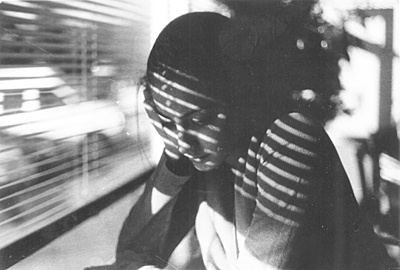All Nonfiction
- Bullying
- Books
- Academic
- Author Interviews
- Celebrity interviews
- College Articles
- College Essays
- Educator of the Year
- Heroes
- Interviews
- Memoir
- Personal Experience
- Sports
- Travel & Culture
All Opinions
- Bullying
- Current Events / Politics
- Discrimination
- Drugs / Alcohol / Smoking
- Entertainment / Celebrities
- Environment
- Love / Relationships
- Movies / Music / TV
- Pop Culture / Trends
- School / College
- Social Issues / Civics
- Spirituality / Religion
- Sports / Hobbies
All Hot Topics
- Bullying
- Community Service
- Environment
- Health
- Letters to the Editor
- Pride & Prejudice
- What Matters
- Back
Summer Guide
- Program Links
- Program Reviews
- Back
College Guide
- College Links
- College Reviews
- College Essays
- College Articles
- Back
Isolation
Has there ever been a time when you felt like you were one against the whole world? As if every person, every thing and every event were somehow working as your adversary? While the world is occupied by billions of people, one individual in any part of the world may feel alone and troubled. Loneliness can be caused by various actions of society; this society includes not only people who are unrelated to an individual but also those that are a part of their immediate lives. Loneliness may even be caused by an individual’s own attitude towards life.
Society isolates people by challenging a person’s worth. If an individual does not fit the description of a ‘normal’ person, then s/he is cast out. This is a form of rejection that often occurs subtly but can be very much explicit, as well. The subtle rejection takes place often in schools, where young adults and children divide themselves in groups and ridicule the others. While the sneering groups are still tolerable, the danger arises when specifically certain individuals are casted aside because of the way they look or the way they act. Here lies the risk of suicide or self infliction. In the novel Of Mice and Men, the colored character, Crooks, faces extreme isolation solely due to his color. He lives in a separate compartment and is not allowed to socialize with others. He feels strange when one central character, Lennie, who is mentally immature, comes to his living quarters just to sit and converse. Crooks welcomes the company and begins a thoughtful conversation with the inattentive audience:
“S’pose you didn’t have nobody. S’pose you couldn’t go into the bunk house and play rummy ‘cause you was black. How’d you like that? S’pose you had to sit out here an’ read books. Sure you could play horseshoes till it got dark, but then you got to read books. Books ain’t no good. A guy needs somebody – to be near him” (Steinbeck 80).
The isolation that society has caused this individual is being of his physical appearance, because he is “black”. While this kind of isolation was present overtly in the societies of America because before the civil rights movement, it is still very much subtly present today among social groups, friendships, marriages and leaderships.
Another way society isolates individuals is by creating certain expectations that are achievable by only a select few. Many times these expectations are not necessarily achieved but are coincidentally present in lives. For example, many women pride in their wealth and judge other women and families based on their financial status or social class. These statuses are likely inherent in the women’s lives but they still feel the need to separate the ‘us’ and the ‘them’. The novel displays this concept of isolation through the words of George, the protagonist of the story. “Guys like us, that work on ranches, are the loneliest guys in the world. They got no family. They don’t belong no place […] They ain’t got nothing to look ahead to” (Steinbeck 15). His words illustrate the loneliness of a certain kind of person, a ranch worker; this worker has nobody but himself to rely on and this, to George, is the loneliest kind of loneliness in the world.
Finally, the third way that society can cause loneliness is by incepting fear in an individual; the individual fears rejection from others. An individual can begin to feel this fear either by personal experience, observation of others or even through the media. All of these factors play in to the thoughts that many isolated people face: ‘They’ll make fun of me’ or ‘I won’t be accepted.’ Society exposes an individual to all of these feelings and depending on the individual, this inception of feelings can cause a person to avoid interaction with others and feel content within his/her own comfort zone.
Loneliness can be caused by a variety of influences which are all in some way related to the society in which in individual lives. The society develops this loneliness in a person by casting the person out, creating expectations that are unachievable and incepting a fear of judgment. Wherever this fear arises from, it affects a person greatly. Pressures from society cause a person to feel completely alone against the world. Next time, you feel like you’re the only one casted out of the norm, think about how this feeling comes from the society around you and not from yourself. And the next time you cast someone out of your life or your circle, think about the loneliness you have caused to that person and how it could affect him/her. After all, Mother Teresa once said, “The most terrible poverty is loneliness” […]

Similar Articles
JOIN THE DISCUSSION
This article has 0 comments.
